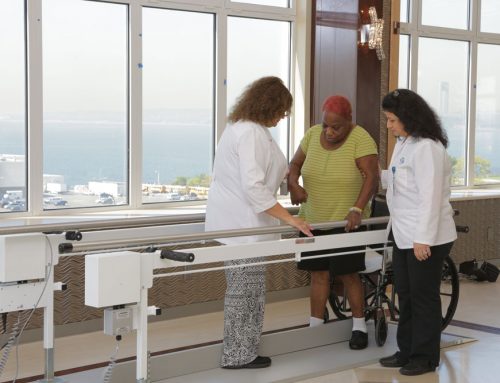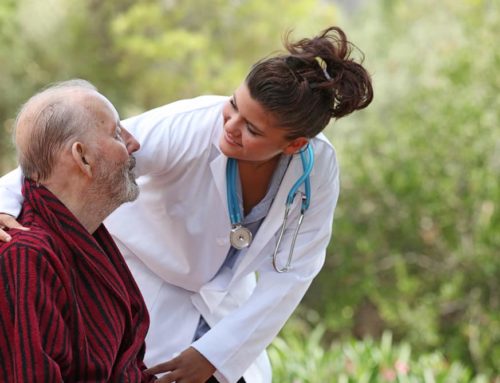The length of time people stay in a nursing home will obviously vary from person to person. Many people over 65 are likely to spend several months or even years receiving full-time care in a nursing home. Age, gender, your net worth and marital status have all been identified as factors determining length of stay. But it’s important to note that it’s actually impossible to predict on a case by case basis.
Caring for the very frail, or elderly people with serious medical conditions, requires skill, dedication, patience and expertise. Haym Salomon Home for Nursing & Rehabilitation in Brooklyn caters for both short- and long-term residents. The Home benefits from a beautiful setting, state-of-the-art equipment and high-quality amenities. Our friendly and professional staff ensure your comfort and well-being and cultivate a family atmosphere.

If you are likely to need care in a nursing home, don’t hesitate to contact us or just walk in to talk to us. Family members have complete confidence in leaving their loved ones with us: they know they are in safe hands. Our friendly staff can advise you on our admissions policy, rehab, fun activities, or financial matters. Our Home accepts most major insurances, including Medicare plans, Medicaid plans, Medicaid HMOs, Medicaid MLTC. While you cannot know how long you stay in a nursing home, planning ahead is important.
Our Home is not only for seniors, but also for young and middle-aged patients.
Studies
There have been a number of studies on the length of time people spend in nursing homes. This will depend on the person’s age, medical condition and many other factors such as family support. Well-to-do people tend to die sooner in nursing homes, whereas women residents tend to spend more time there. Surprisingly perhaps, people who are married tend to spend less time in nursing homes than single people—they die sooner.
Ending up in a nursing home is by no means inevitable and many people never set foot in them. One study suggests 25 per cent of us will die while residing in a nursing home. For those who are admitted to such establishments, the average stay is nine months to two years. More than half of those admitted die within six months of admission. The wealthiest quarter of net worth nursing home residents died six months sooner than those in the lowest quartile.
Planning
Planning for when you might need extra care at home, in a day-care center or in a nursing home is vital. It won’t determine how long you stay in a nursing home, but it will give a degree of peace of mind. Many elderly people require surgery of one kind or another and recovering from it may require rehab. This might initially be at home, but later may be in a nursing home. Knowing the likely course of your later years can help you plan financially and prepare emotionally and spiritually.
Insurance and length of stay in nursing homes
Many insurance policies won’t cover all your end-of-life medical costs and care. Financial planning is obviously important, but so is talking to friends and family to keep them in the picture. They may, or may not, be able to help financially, emotionally or on a practical level.
Most nursing homes understand the stress that patients and their families go through during the admissions process. This is often a time when rehab is needed and when your home carer can no longer cope. You may need specialist medical supervision 24/7 because you can’t swallow following a stroke. Falls are very common in elderly people and recovering from them can take time and require specialist treatment.
Obviously, how long you stay in a nursing home will determine the cost of staying there. Working out exactly what your insurance policy covers, and does not cover, can be tricky and stressful. The rules often change so you’ll need the best advice you can get. Nursing Homes like Haym Salomon Home have financial services specialists who can guide you on what your insurance covers.
This content comprises informative and educational resources only and can not be considered as a substitute for professional health or medical guidance. Reliance on any information provided in this article is solely at your own risk. If you have any inquiries or apprehensions about your medical condition or health goals, talk with a licensed physician or healthcare provider.






Leave A Comment